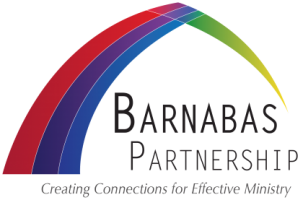
One of my favorite boyhood jokes goes like this:
The Lone Ranger and Tonto were surrounded by an Indian war party; they sent their horses Silver and Scout away to safety, and now were down to their last bullets. The Lone Ranger turns to Tonto and says “I don’t think we’re going to make it out of here, Tonto!” Tonto replies: “Who’s ‘we,’ Paleface?”
Though the language is out of touch with modern sensibilities, like any good joke, it begins with our expectations for how things should be, and then reminds us that may not be the case. Two people in the exact same situation can experience it very differently, and that difference hinges on identity.
2020 will go down in history as a “plague year” in so many ways. 2021 is already off to a shaky start, but we have expectations that things are really going to turn around when the pandemic ends. Our patterns of life will return to some sense of normalcy; we will get to spend time with friends and family; folks will return to church and we’ll “sing and shout the victory!”
But I’m wondering. When we all get back in the same rooms together, some for the first time since last March, what will it be like? As we begin to share our stories, I think we will find that many folks in our churches experienced 2020 very differently from each other. Some were isolated at home while some went about their lives with little change. Some were without work, some prospered. Some doubted the validity of COVID, some suffered mightily. Some found their political perspectives validated by victory, some see their views reinforced by defeat. Common ground may be hard to find. Congregational identity and fellowship could be at risk. Will “we” fall victim to the social discord that has divided our nation? Who’s “we?”
We don’t yet know the answer to those questions. But if we are not prepared to address them, we may be setting up our congregations for a period of discord or spiritual impotence.
So, what can we do to prepare for that wonderful day when we will gather in Sunday School rooms and fellowship halls? Here are a few ideas that I’m pondering:
Model and teach healthy communication
Even before you gather, your communication should exemplify best practices and good theology “only what is helpful for building others up according to their needs, that it may benefit those who listen.” Most people have never talked about how they talk to one another. Invite someone to come and lead a session or two on healthy communication.
Create conversational experiences
Not just for visioning processes! This can happen in special gatherings or ongoing small groups. There are several models to consult, and having people gather for focused conversation with clear guidelines and trained facilitators is a healthy way to encourage listening to and learning from each other’s stories.
Do ministry together
You already know this, but don’t forget that working side by side in worthwhile work can create new bonds and restore damaged ones. Even when very large groups are not able to gather, small work parties will be able to work in open spaces. This can also be an effective means of integrating folks who have come into the fellowship during the pandemic.
Focus on common faith and worship
Gear worship and teaching to remind the Body of what makes us a body. What connected us before 2020 has not changed. “Is Christ divided?” Celebrating the Lord’s Supper/Communion and baptism together will be especially sweet, savor it. Hearing each other’s voices joined in song will be powerful. Take time to honor that experience.
Create new traditions
We will all be glad to experience the traditions of worship and fellowship that we had to forgo in the time of pandemic. We do well to remember that every tradition was once done for the first time. What can you do that will mark this moment in the life of your church and create a reminder of the faithfulness of God and unity of God’s people?
Revisit mission and vision
Even if you completed a visioning process in 2019, the world really has changed in the last 12 months. Congregations have learned lessons about new competencies and old shortcomings that we did not know a year ago. We have made and lost connections with people in our communities. How will these changes affect how we fulfill God’s purposes?
Who’s “we?” Who are we now? Still the same, now and forever, the redeemed children of God called together to bring God’s grace to the world!
Dr. Paul Raybon, our partner in ministry in the Western Carolinas, can help you and your ministry navigate congregational unity and effectiveness. He is Associate Pastor at Hominy Baptist Church near Asheville, NC and works with churches and leaders as a coach and consultant in communication, visioning, administration, and spiritual formation. For more information about how he can help you, contact him at [email protected]
